- Home
- Mark Lawrence
Dispel Illusion (Impossible Times)
Dispel Illusion (Impossible Times) Read online
PRAISE FOR MARK LAWRENCE
‘I enjoyed the hell out of One Word Kill. Mark is an excellent writer.’
—George R. R. Martin
‘One Word Kill is the kind of story that will stay with you for a lifetime.’
—Robin Hobb, New York Times bestselling author
‘A completely absorbing tale that perfectly captures the fear, awkwardness, cynicism and optimism of adolescence.’
—Anthony Ryan, New York Times bestselling author of The Legion of Flame
‘One Word Kill grabs hold of you and won’t let you go until you’ve finished the last page. It’s everything that I look for in a book, and like the best of reads, one that stays with you long after you’ve finished reading it.’
—John Gwynne, author of The Faithful and the Fallen series
‘Mark Lawrence balances big ideas with small, personal stakes very skillfully.’
—SFX
ALSO BY MARK LAWRENCE
Impossible Times
One Word Kill
Limited Wish
The Broken Empire
Prince of Thorns
King of Thorns
Emperor of Thorns
Red Queen’s War
Prince of Fools
The Liar’s Key
The Wheel of Osheim
Book of the Ancestor
Red Sister
Grey Sister
Holy Sister
DUNGEONS & DRAGONS is a trademark of WIZARDS OF THE COAST LLC. Title used with permission.
This is a work of fiction. Names, characters, organizations, places, events, and incidents are either products of the author’s imagination or are used fictitiously. Any resemblance to actual persons, living or dead, or actual events is purely coincidental.
Text copyright © 2019 by Mark Lawrence
All rights reserved.
No part of this book may be reproduced, or stored in a retrieval system, or transmitted in any form or by any means, electronic, mechanical, photocopying, recording, or otherwise, without express written permission of the publisher.
Published by 47North, Seattle
www.apub.com
Amazon, the Amazon logo, and 47North are trademarks of Amazon.com, Inc., or its affiliates.
ISBN-13: 9781542016322 (hardcover)
ISBN-10: 1542016320 (hardcover)
ISBN-13: 9781542094016 (paperback)
ISBN-10: 1542094011 (paperback)
Cover design by Tom Sanderson
CONTENTS
THE STORY SO FAR
CHAPTER 1
CHAPTER 2
CHAPTER 3
CHAPTER 4
CHAPTER 5
CHAPTER 6
CHAPTER 7
CHAPTER 8
CHAPTER 9
CHAPTER 10
CHAPTER 11
CHAPTER 12
CHAPTER 13
CHAPTER 14
CHAPTER 15
CHAPTER 16
CHAPTER 17
CHAPTER 18
CHAPTER 19
CHAPTER 20
CHAPTER 21
CHAPTER 22
CHAPTER 23
ACKNOWLEDGMENTS
ABOUT THE AUTHOR
THE STORY SO FAR
Here I present a catch-up of the previous books to refresh your memory and avoid having characters undergo ‘as you know’ conversations. This is in no way a substitute for reading One Word Kill and Limited Wish. It is meant to help those who have already read books one and two.
Nick is a mathematical genius who lives in Cambridge and has turned twenty-two between books two and three. The year is 1992.
Nick’s D&D group consists of his two schoolmates, John (handsome, rich, somewhat shallow) and Simon (antisocial, obsessive, has a brilliant memory), plus his girlfriend Mia (witty, imaginative, streetwise). Their former dungeon master, Elton Arnot, has withdrawn from the group because the death of his father, a security guard, made him unwilling to risk the rest of his family through continued association with Nick.
Demus is Nick aged forty. In book one he comes back from the year 2011 in order to convince Nick and Mia to record her memories so that they can be reinstated after she suffers a terrible accident in the future.
In book one Demus steers Nick and his friends into stealing an advanced microchip needed to complete the memory storage device. During this robbery Demus and Elton’s father are killed by school psycho-turned-would-be-drug lord Ian Rust. Rust also dies.
Six months later, in book two, Demus is involved with Nick and his friends when they discover and undo a potentially world-ending paradox. The paradox involves two timelines that fail to separate properly after a decision Nick makes.
In book two we meet the older Rust brother, Charles. He is employed by Miles Guilder, a rich and unscrupulous businessman who funds Nick’s research and is very keen to drive it forward with reckless speed. Also heading the experimental side of the time-travel project are Professor Halligan and experimentalist Dr Ian Creed. Success so far has been very limited.
You can enjoy the book without thinking too hard about the mechanics of time travel, but for the curious, here is an optional reminder of the technical side of things:
Every action splits the timeline into many new timelines, one for each possible outcome. When someone travels to the past, their arrival should immediately start a new timeline so that paradox is impossible. They can kill their father long before they were born because the father they are killing is the version on this new timeline, not the father who created them. That father exists in their past and you cannot change your past.
We learn in book one that Nick Hayes lives in a very special, possibly unique, timeline where going back into the past does not split the traveller off on to a new timeline. Nick knows this because he remembers himself at forty coming back to 1986 and interacting with himself at fifteen.
However, the past still cannot be changed. If the time traveller does anything that is incompatible with their own past – killing their own father before he meets their mother, for example, or simply not doing something that they remember seeing their older selves do – then at that point they create a new timeline and split off on to it.
Demus (Nick at forty from 2011) can come back and remain on the timeline he remembers, but his actions are constrained by the need for unfolding events to match his memories of the time (when he was Nick). If what happens does not match his memories, then the world has branched on to a new timeline and his actions cannot help the Mia he knows in the future. Similarly, he can’t do anything that is incompatible with the world he knows in 2011. For example, he can’t kill someone he knows is alive then, or save someone he knows is dead then. If he did, he would split on to a new timeline.
At the end of book one Nick uses the memory storage device to erase his memories of the events during the robbery at the microchip laboratory and of a number of days before that. This is in order to match the gap in Demus’s memory and to spare him the detailed knowledge of exactly how he dies.
In order to make sure that Nick’s timeline and Demus’s timeline continue to be the same, Nick will have to become Demus as he grows older. This means he will have to invent time travel. Nick doesn’t want to go back and die saving Mia, but he does want to save Mia, and if he doesn’t go back as Demus and do what he remembers happening then that would create an incompatibility – a paradox – which would resolve itself either by destroying the timeline, or by it turning out that Demus’s memories are delusions, which would mean Mia could not be saved after her accident.
CHAPTER 1
1992
The two saving graces of explosions are that from the outside t
hey’re pretty and from the inside they’re quick. The one I was in was taking forever, though, and had none of the fiery goodness of the typical Hollywood offering. When time explodes it tends not to create exciting fireballs, and most of the shrapnel inside the Winston Laboratory was crawling through the air at a pace that would make snails look zippy.
I was closer to the detonation than any of the others, since I’d been running towards the array of electromagnets with the intention of turning them off. Dr Ian Creed and a lab technician named Dave were another ten yards further back, and a scattering of researchers stood among the workbenches another ten yards beyond that.
The huge magnets had been reduced to jagged iron shards and were being flung out on trajectories made hard to predict owing to the powerful magnetic fields still trying to haul them back together.
My brain had skipped a beat between running towards the assembly and being hurled back by the leading edge of the shockwave, and my next coherent view of proceedings had been as I hung in the air, apparently frozen in place, facing a similarly stationary array of sharp metal brought to a halt some small fraction of a second before, which thankfully avoided them punching a variety of fatal holes in me.
It took, or seemed to take, an age before my body-time caught up with my brain-time. The fracturing of the time led to all the various components of the explosion following their own internal clocks, and while the distribution appeared random, it was clear that the living pieces in the mix were operating on the fastest clocks. My father once told me that the equations that govern the universe don’t care about ‘now’. The mathematics of time don’t care about ‘now’, they just ask what value you want to set ‘t’ to. There’s a special connection between consciousness and time. Einstein said, ‘Time is an illusion’, and the great Douglas Adams had even greater doubts about lunchtime. The more I dug into the mathematics of time, the more I found I was digging into the connections between the universe of atoms and fields and the universe of wet squishy consciousnesses. Life in general, and human intelligence in particular, had once seemed an inconsequential complication in the world of physics; but the more we learned, the more intelligence had revealed itself to be a fundamental mystery at the heart of everything, deeper than the dances of stars and galaxies.
As mentioned, I had a lot of time on my hands while waiting for my body clock and brain clock to synchronise. When at last the former caught up with the latter, I struggled to get my feet on the floor and began to run.
The thing about being incredibly fast compared to your surroundings is that it doesn’t really work like it does in the comic books. The air doesn’t want to get out of your way. It’s still on slow time, and running at 300 miles an hour is just as hard as standing still in a super-tornado with 300- mile-an-hour winds trying to knock you down. Plus, the floor can’t give you the friction you need to accelerate. It turns into an ice rink while the soles of your shoes melt.
Dr Creed and Dave weren’t moving as fast as I was, but they were moving a hell of a lot faster than everything else in the room. I saw them try to shout questions, but of course by the time any sound they made reached my ears we would all be mincemeat. Further back, the rest of the staff were still as statues. The fact of the explosion hadn’t even registered on their faces yet.
I ran, but my progress seemed painfully slow. It was exhausting, too. By the time I reached the first bench, panting and gasping, I was thirsty and bored. The fear and adrenaline had been run right out of me. I reached for a plastic cup of coffee that hung frozen in the moment on its way to the floor. Dry-mouthed, I tried to take a swig, but the plastic fractured beneath my fingers, unable to drag the weight of coffee through the air towards me at the speed I wanted it. Even if the cup had been made of iron, the liquid would have refused to pour at any rate that wouldn’t make a glacier look swift.
As I wrestled with the cup a jagged shard of iron passed sedately beneath my arm.
‘Shit!’
Turning my head I saw the shrapnel cloud had stolen into motion. Not all at the same rate. Some pieces tumbled through the air as if they were sinking through mud; others crept forward only slightly faster than the minute hand on a clock. The rest hung there silently, biding their time. A small piece swept by my ear at the speed a bowling ball approaches the pins.
Unable to find the traction to outpace the oncoming storm I started to turn, contorting my body to allow the fragments past me rather than through me as they caught up. I danced my curious jig as if weightless. When I took both feet from the floor, gravity reeled me in so slowly it might as well have been turned off.
A piece of metal almost too small to see cut a line across the side of my hand. It really hurt and drew my attention to the bright motes streaking towards me. They could be just as fatal as a book-sized chunk if they tore through my head or heart, and no part of me wanted to find out if I could survive a dozen needle-size holes punched entirely through the slightly less vital parts of my body.
The sound of the explosion reached me, impossibly deep, shaking my chest. I was slowing down and still the metal storm continued its slow-motion tumble around me. Gravity’s grip on me strengthened and I let it start to take me down as I passed the workbench.
Pieces of shattered magnet began to zip by with high-pitched whines, too fast to avoid. Fortunately, they were fragments that I had already spotted before their sudden acceleration and had contrived not to be in the path of.
As I hit the floor I began to hear the screams and shouts of my co-workers, my own clock having slowed enough to allow soundwaves time to do their job. I lay there while things hissed past. The workbench exploded into splinters as a chunk of metal tore through all the wooden and plastic shelving beneath, shredding equipment. I found my arm peppered with secondary shrapnel.
And suddenly it seemed to be over. The echoes of devastating impacts died away, leaving a deafening silence.
I edged my head above the benchtop and blinked to see a cloud of glittering pieces still hanging there at the centre of the explosion. Without warning, one hissed by overhead to punch a hole in the warehouse roof fifty yards behind me. I glanced back at Dr Creed. All of us seemed to be in synch now, moving in regular everyday time as far as I could tell.
He met my eyes above the bench he had been hiding behind, then yelled, ‘Run!’
We both followed his advice, heading for the closest exit while behind us the cloud of frozen pieces sporadically popped back into regular time, like kernels of corn popping in a saucepan, and zipped out to destroy something.
It wasn’t until I reached the door and glanced back that I saw that Dave was lying close to where I last laid eyes on him, his white lab coat all red now.
‘So what happened then?’ John asked, his hand still in a pack of Quavers that he had forgotten all about.
‘The cover-up began, of course.’ I leaned back in my chair. This must be what it was like to be the dungeon master, all eyes on me. Simon and Mia watched me across the gaming table: a much bigger affair than the one in Simon’s bedroom. John had secured his job at the merchant bank immediately on leaving uni but he’d only been at it a month and, however huge his starting salary, there was no way his dad hadn’t paid for his ridiculously expensive Putney flat overlooking the Thames. ‘I have to believe that there will be an inquest into Dave Weston’s death, but Guilder has the funds to grease an awful lot of palms and the lack of morals to have those he can’t buy intimidated. With monsters like Charles Rust on his payroll he just has to say what he wants and how many legs he’s prepared to have broken to make it happen.’
‘I still don’t understand why he’s so set on pushing the experimental side of things before you’ve nailed the theory down.’ Simon turned his gaze back to the dice. It took a lot to distract him from a game of D&D, especially now that his vast acreage of spare time would drastically shrink when he took up his accountancy job at the end of the summer. I’d done well to sidetrack him this long, but now that the exploding part was o
ver he wanted to get back to the game.
‘And I don’t understand why you would do an idiot thing like run directly at equipment you thought was about to blow up!’ Mia said, rather more heatedly than Simon.
‘I didn’t think it was going to explode right there and then! Well . . . I did a bit, but I thought I could pull the wires before they set it off. And to answer your question, Si, I don’t understand it either. I used to think it was just greed. I thought he just wanted to stay ahead of any competition and nail down all the financial rights. But now it seems like an obsession.’
John shrugged and returned to his Quavers. ‘People get obsessed with money, even when they already have more than they know what to do with.’ He looked pointedly over at Simon’s character sheet, where Fineous the thief had gold coins listed by the thousand along with a profusion of gems and jewellery.
‘Someone needs to look after it all,’ Simon replied with unfeigned innocence. ‘And who is least likely to have the treasure stolen off them?’
I snorted. ‘That sounds reasonable until you realise what he’s saying is that if you or I were carrying it, he would just steal it off us.’
We settled to the game, the same campaign that Mia had been running for six years now. Somehow we’d managed to maintain it through sixth form and university, and now into the start of various careers. My own life during that period had been rather more static than the others’, since I’d gone to Cambridge at sixteen and was still there at twenty-two, still bashing my brain against the same problem. The newspapers, and occasionally my colleagues, liked to claim I was making breakthroughs every month, pushing back mathematical frontiers and casting light into dark corners of our understanding. To me it felt more as if I were chipping tiny pieces off some vast marble block, hoping that something beautiful lay deep inside and that, at the end of my efforts, I would stand back to behold a magnificent statue rather than just a big heap of marble fragments.
Mia set the scene for us. Her biggest strength as a dungeon master had always been her ability to create the atmosphere and play the parts of everyone we met. It was a talent that, honed by years at a theatre school, had recently secured her a job as the understudy’s understudy in The Mousetrap, Agatha Christie’s murder mystery, which was in its fortieth continuous year in the West End. It was only a temporary arrangement since the understudy had broken her ankle, and really Mia was too young for the role; but even so, it was a prestigious thing to have on an actor’s CV, and if the planets aligned to give her a shot on the big stage I knew she would do well.

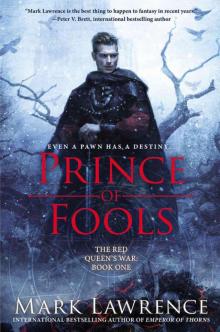 Prince of Fools
Prince of Fools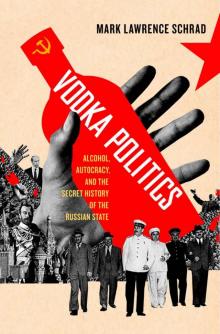 Vodka Politics: Alcohol, Autocracy, and the Secret History of the Russian State
Vodka Politics: Alcohol, Autocracy, and the Secret History of the Russian State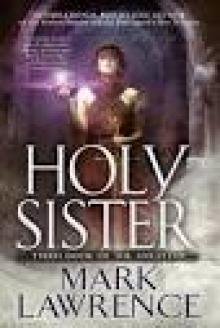 Holy Sister
Holy Sister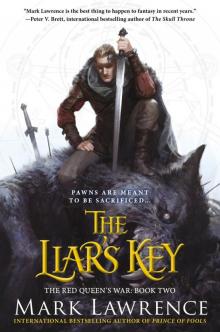 The Liar's Key
The Liar's Key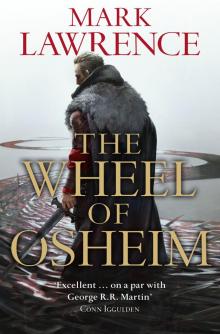 The Wheel of Osheim
The Wheel of Osheim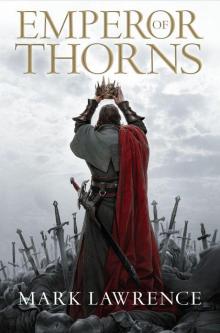 Emperor of Thorns
Emperor of Thorns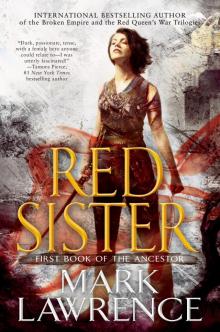 Red Sister
Red Sister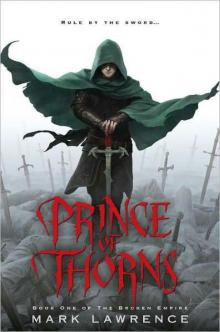 Prince of Thorns
Prince of Thorns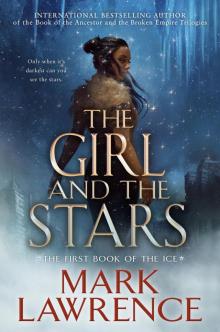 The Girl and the Stars
The Girl and the Stars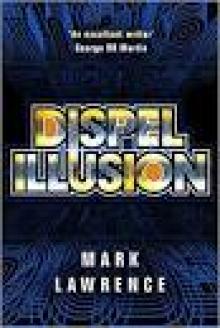 Dispel Illusion (Impossible Times)
Dispel Illusion (Impossible Times)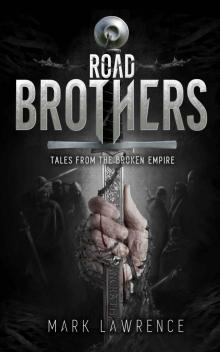 Road Brothers
Road Brothers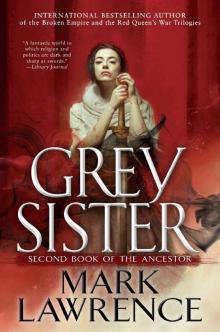 Grey Sister
Grey Sister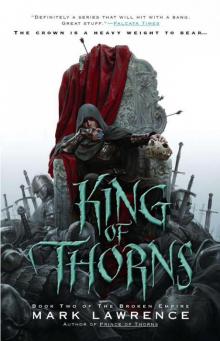 King of Thorns
King of Thorns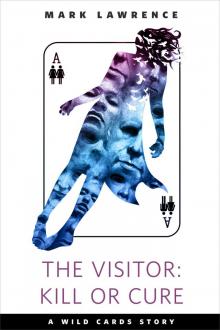 The Visitor--Kill or Cure--A Tor.com Original
The Visitor--Kill or Cure--A Tor.com Original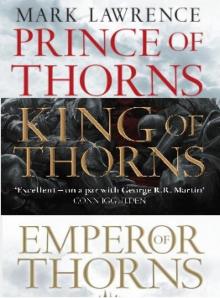 The Broken Empire Trilogy Omnibus
The Broken Empire Trilogy Omnibus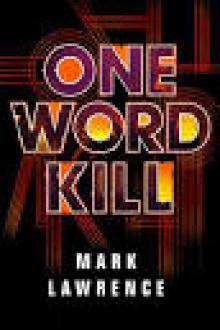 One Word Kill (Impossible Times Book 1)
One Word Kill (Impossible Times Book 1)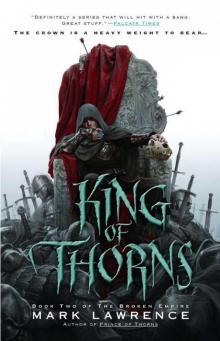 King of Thorns be-2
King of Thorns be-2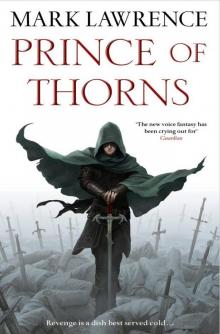 Prince of Thorns tbe-1
Prince of Thorns tbe-1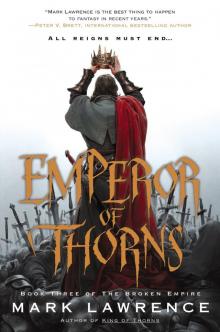 Emperor of Thorns tbe-3
Emperor of Thorns tbe-3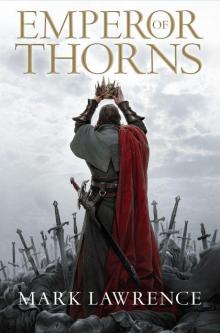 Emperor of Thorns (The Broken Empire, Book 3)
Emperor of Thorns (The Broken Empire, Book 3)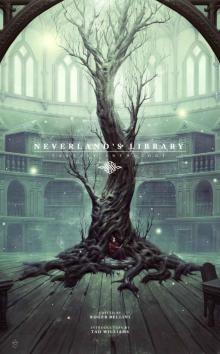 Neverland's Library: Fantasy Anthology
Neverland's Library: Fantasy Anthology